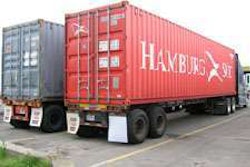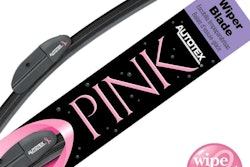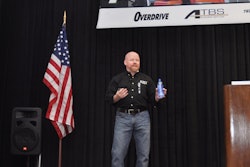In the last year, several shippers have begun phasing out providing intermodal chassis or charging for them at ports because they said it adds to efficiency and reduces emissions, among other things.
Still, the Federal Motor Carrier Safety Administration’s intermodal equipment final rule, effective 14 months ago, is likely to have played into these decisions. Issued in compliance with the last omnibus transportation bill, the rule made intermodal equipment providers subject to federal roadability regulations for the first time.
The trucking industry united to advocate for creation of the rule, which attempts to ensure that intermodal chassis are roadworthy.
These providers were required to register and keep maintenance and repair records with the agency by Dec. 17, 2009. A Dec. 29, 2009, amended final rule delayed certain requirements until June 10. The providers’ chassis must have their company name and U.S. DOT identification number on it by Dec. 17.
“Whoever owns the chassis will still be responsible for making sure it meets roadability regulations,” said Norita Taylor, spokeswoman for the Owner-Operator Independent Drivers Association.
A year ago, Maersk Line was the first major shipper to begin charging for chassis with its Direct Chassis Link program. It started in Northeast ports, expanded to Gulf and Northwest ports and will begin the program in the Southeast and Gulf inland regions by Sept. 7.

The company said the charges would improve, among other things, chassis safety and reliability.
Last month, CMA CGM implemented a new chassis Supply Management Policy to cease chassis supply to truckers. It will start in Mobile, Ala., in October, end with West Coast ports in March and issue an implementation schedule later for additional locations.
CMA CGM said this will increase efficiency and decrease emissions because truckers will no longer wait at the terminal for chassis.
Orient Overseas Container Line Limited began to quit offering chassis at ports last year and is implementing this in stages. It most recently said it will quit providing chassis for some Eastern ports starting Sept. 1,
This month, NYK Line North America Inc. quit furnishing chassis in smaller Northeast markets, but will delay its original Sept. 1 deadline for the Oakland, Calif., port, it said.
NYK said it will charge for merchant hauling moves only and all carrier hauling chassis usage cost will be for the NYK account. It also cited better efficiency and decreased environmental impact.
Major shipper Evergreen Line started phasing out chassis provision for Boston import and export cargo this month. It said terminal space and projected growth makes chassis storage no longer viable.
In June, Atlantic Container Line began shifting its U.S. carrier arranged trucking moves to motor carriers that furnish the chassis. It had negotiated with a “broad range of truckers who have convinced the company that these same trucking companies or owner operators can manage a chassis fleet more cost-efficiently than an ocean carrier can do,” it said.
ACL will phase out its carrier-owned chassis fleet for shipper-arranged hauling shipments, starting in Miami, Boston and Ohio Valley, and later other ports.
On Aug. 3, Steve Rubin, president and CEO of TRAC Intermodal, formerly Seacastle Chassis, announced TRAC Connect, a chassis provider for intermodal drayage. He noted steamship lines were making a transition from providing chassis to motor carriers and that TRAC is in several ports and adding locations to meet anticipated customer need.
“Meanwhile, our industry-leading PoolStat software is being enhanced to provide steamship lines with flexibility to develop customized chassis models as they seek to exit the chassis business on their own terms,” Rubin said.










